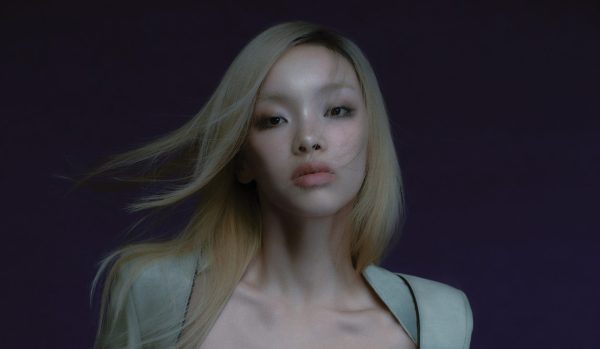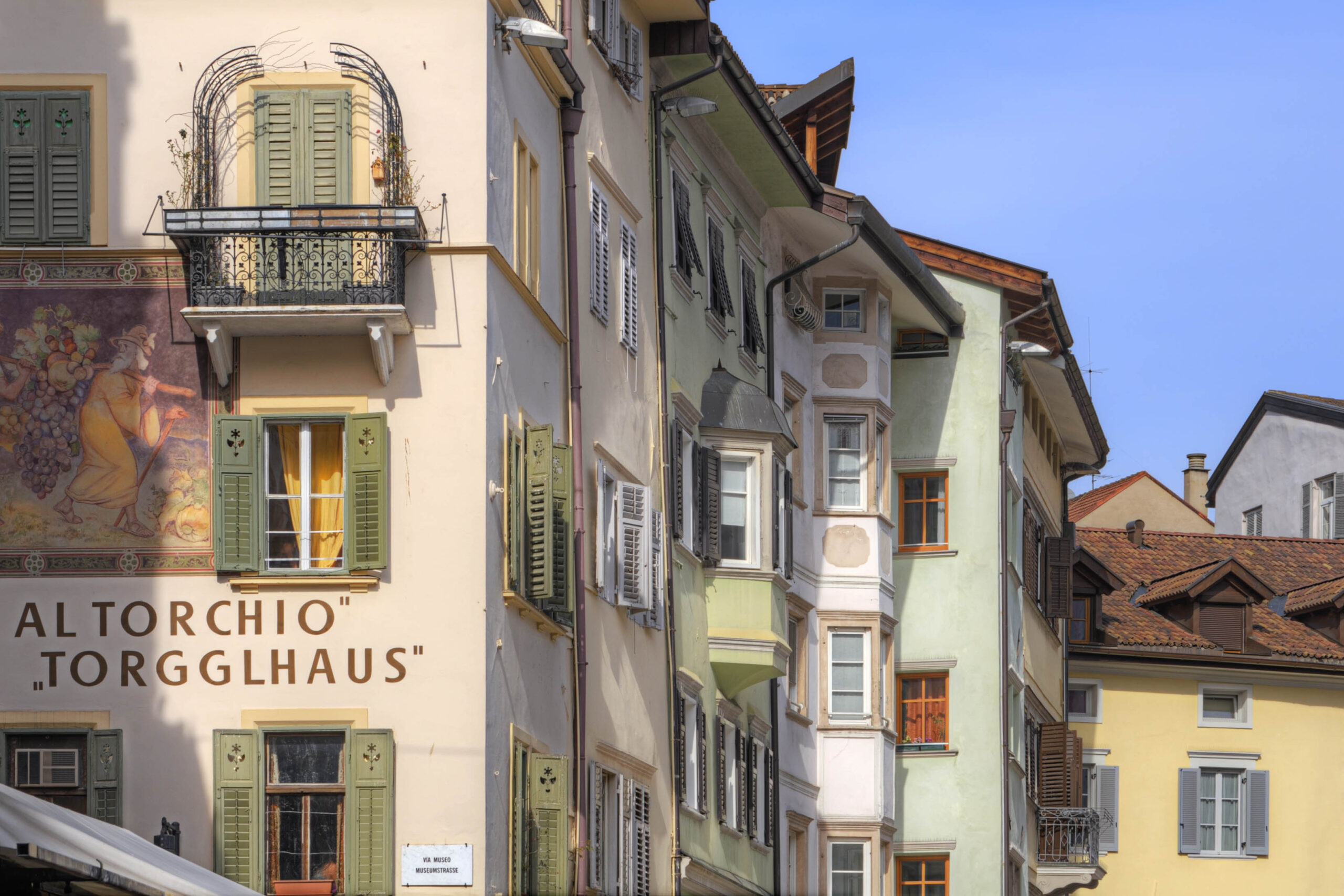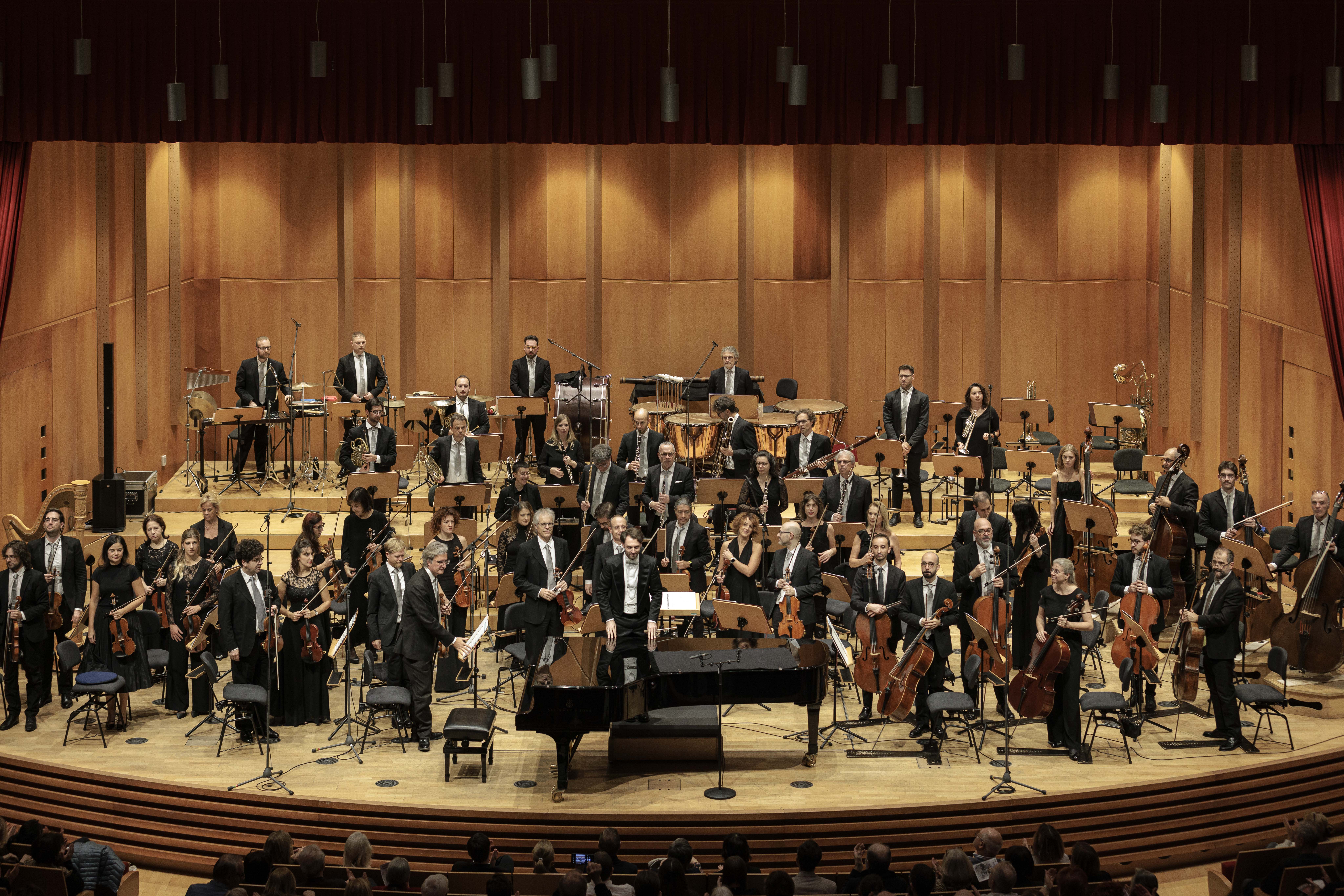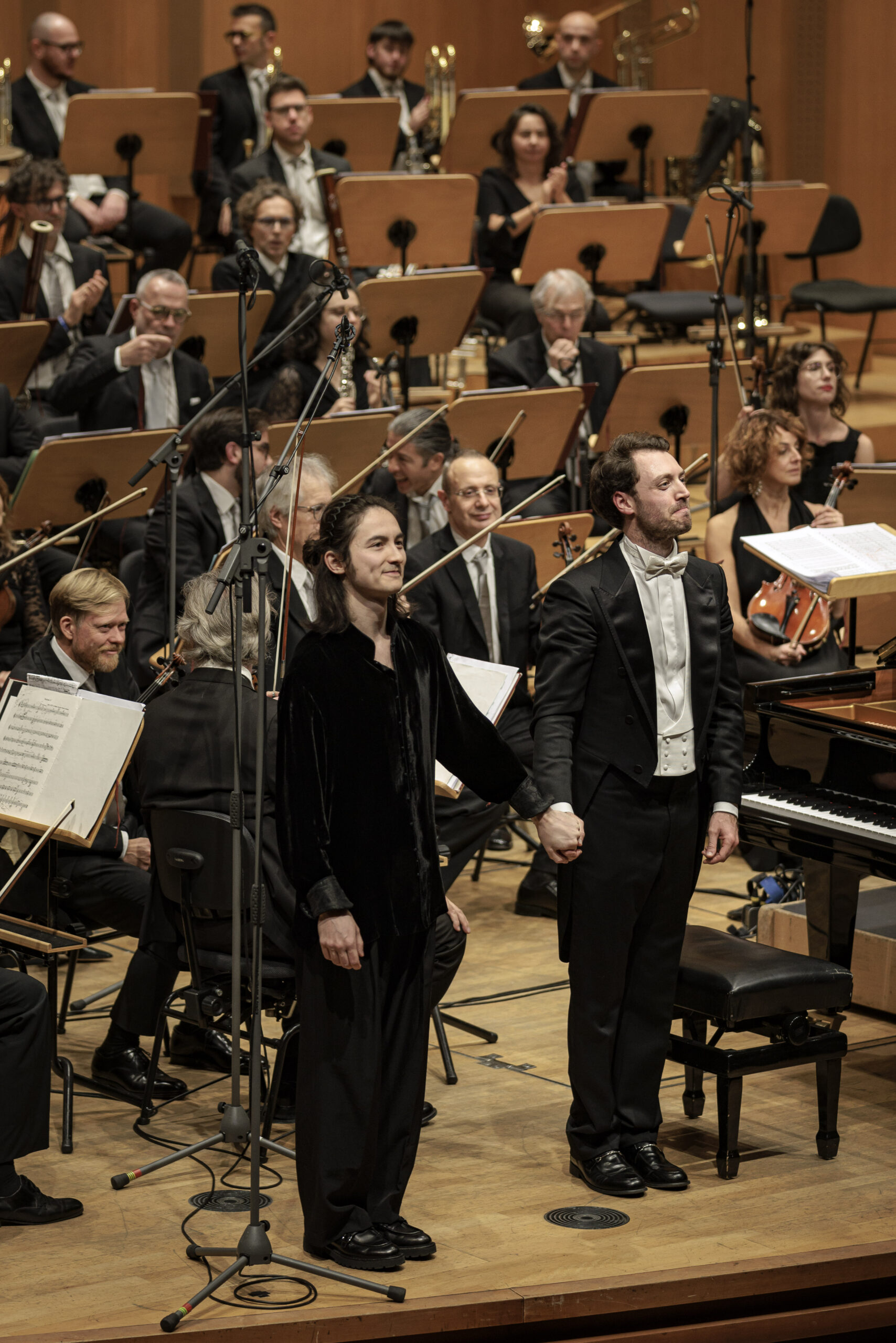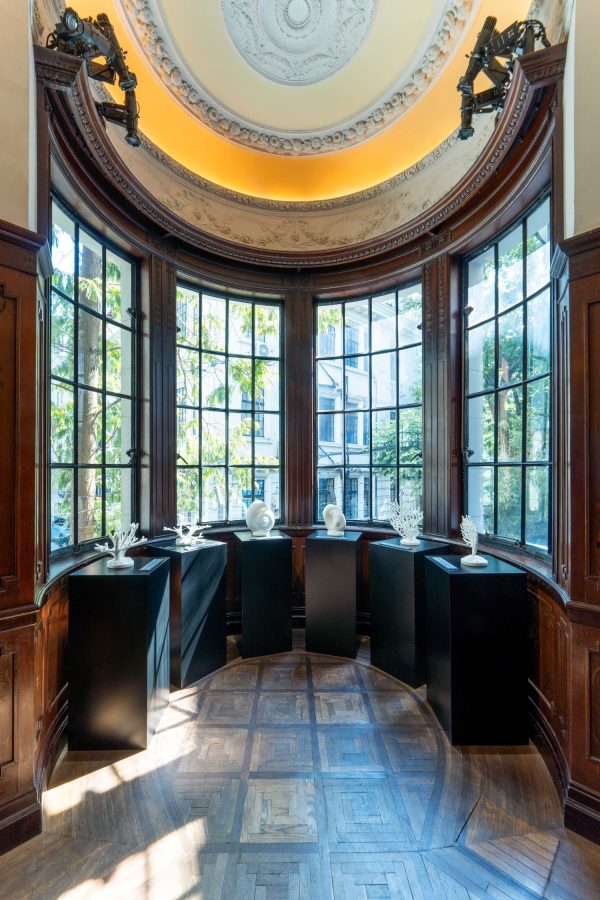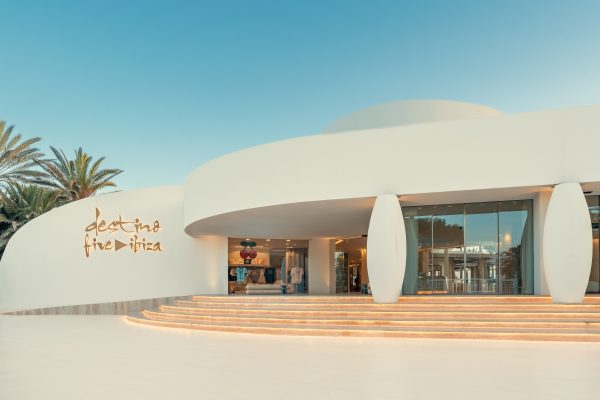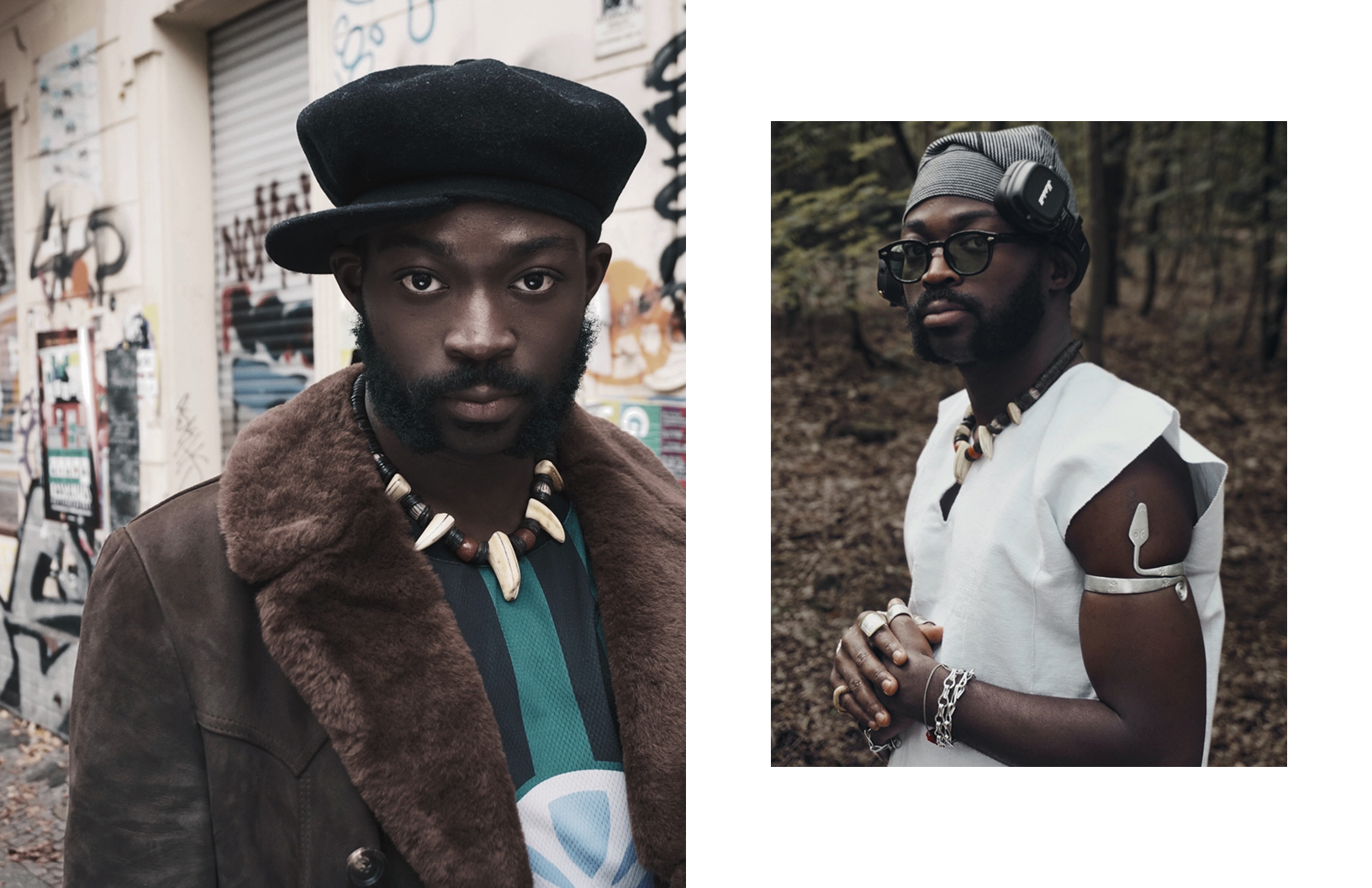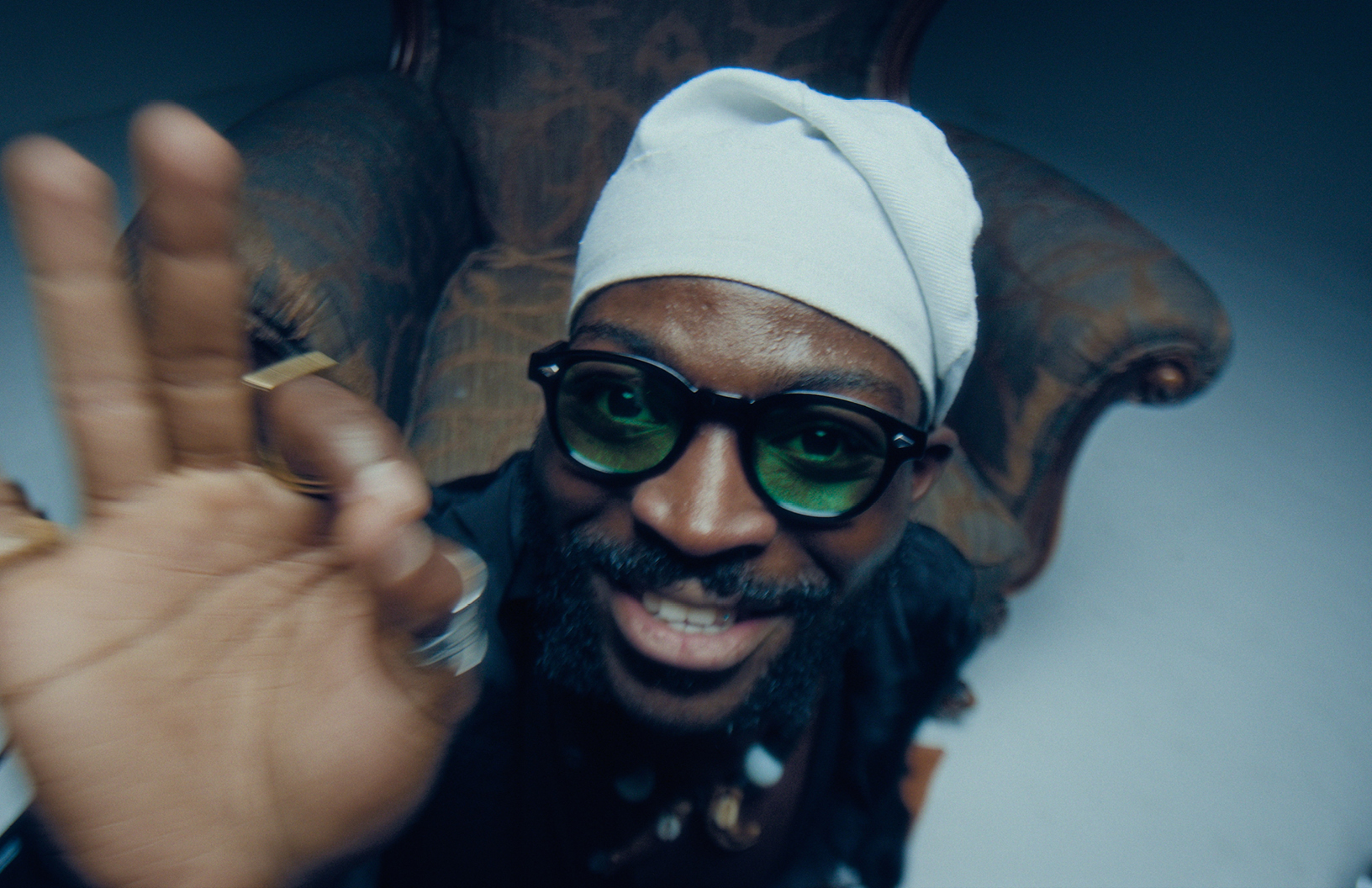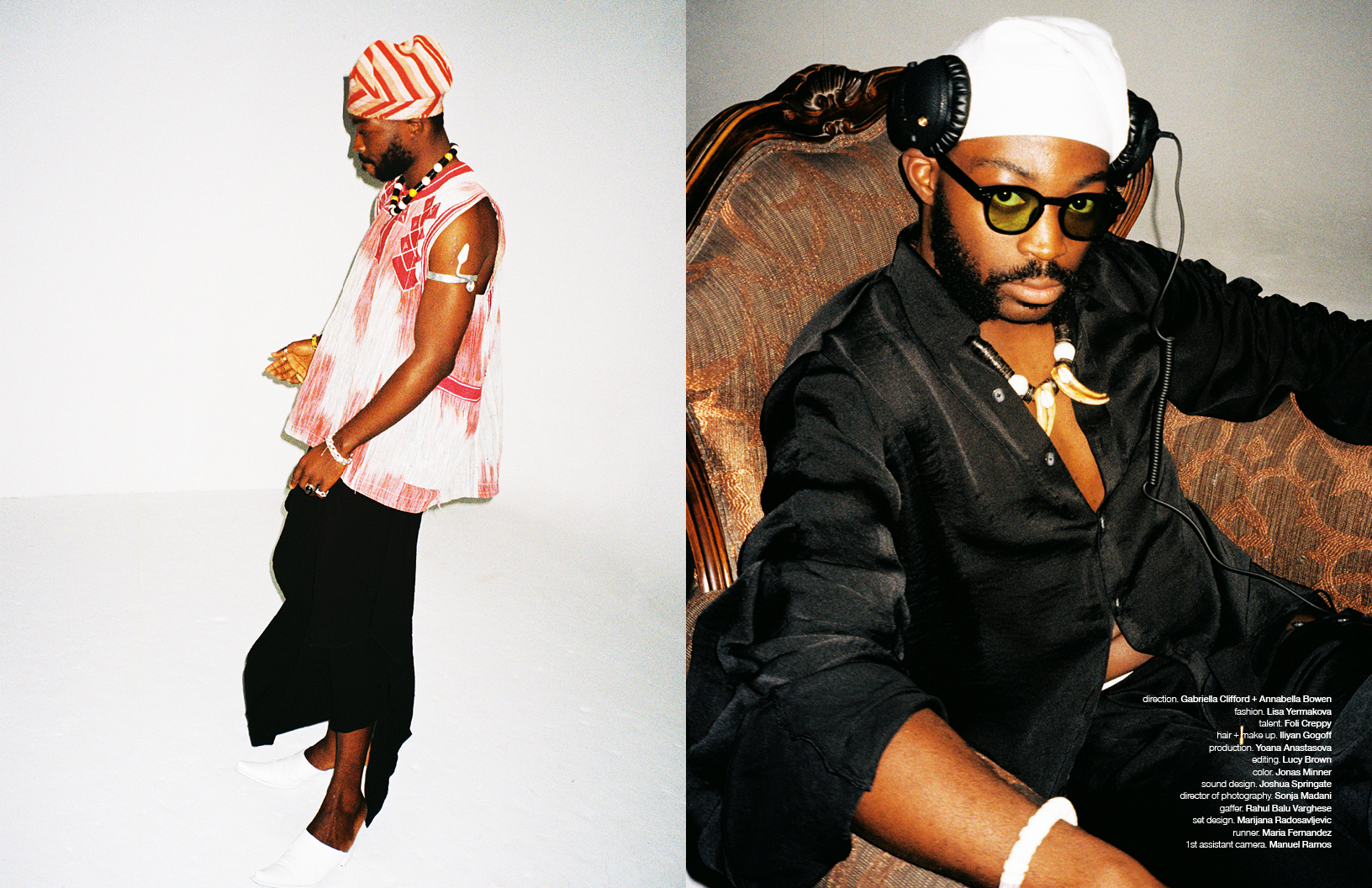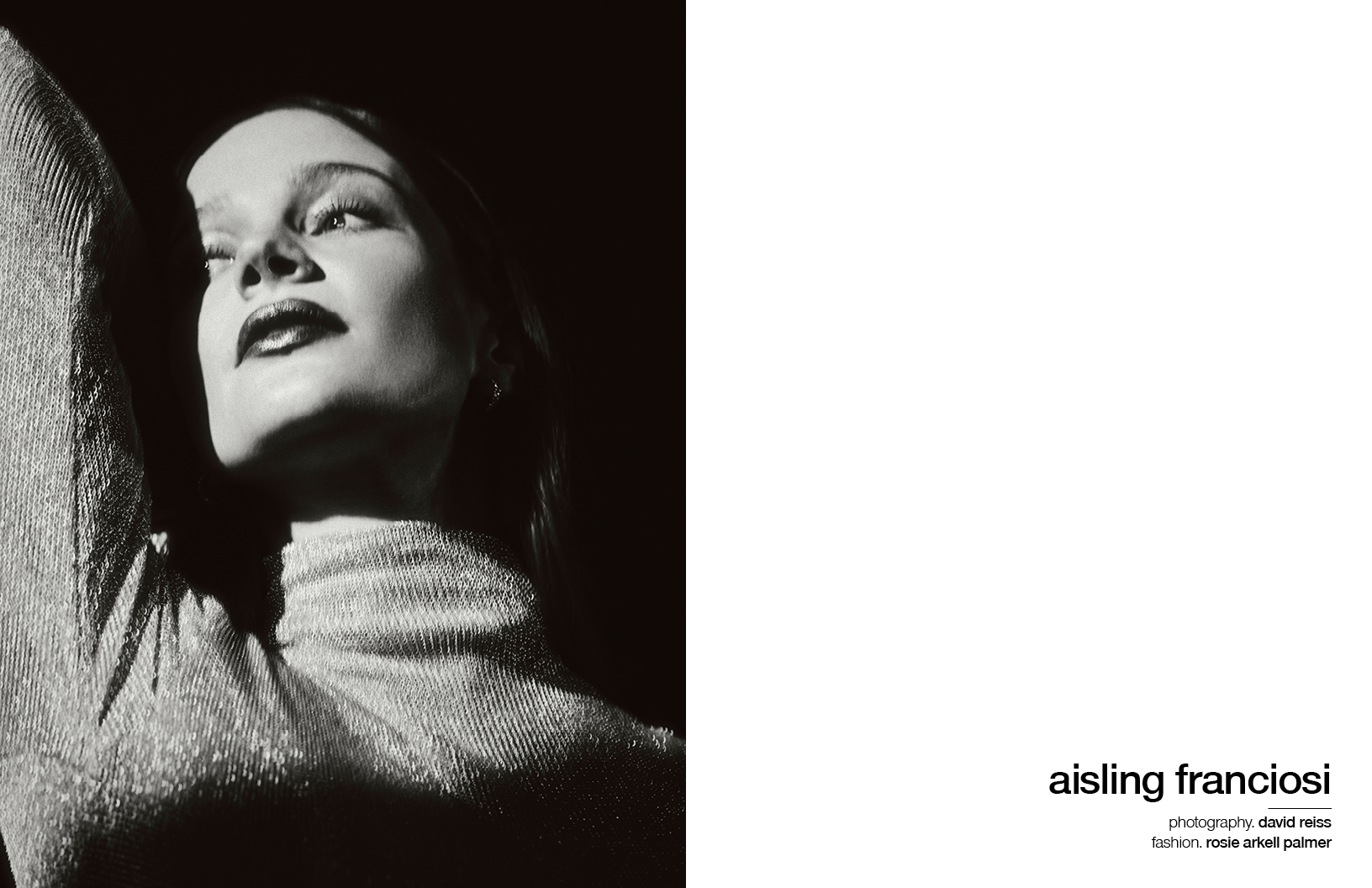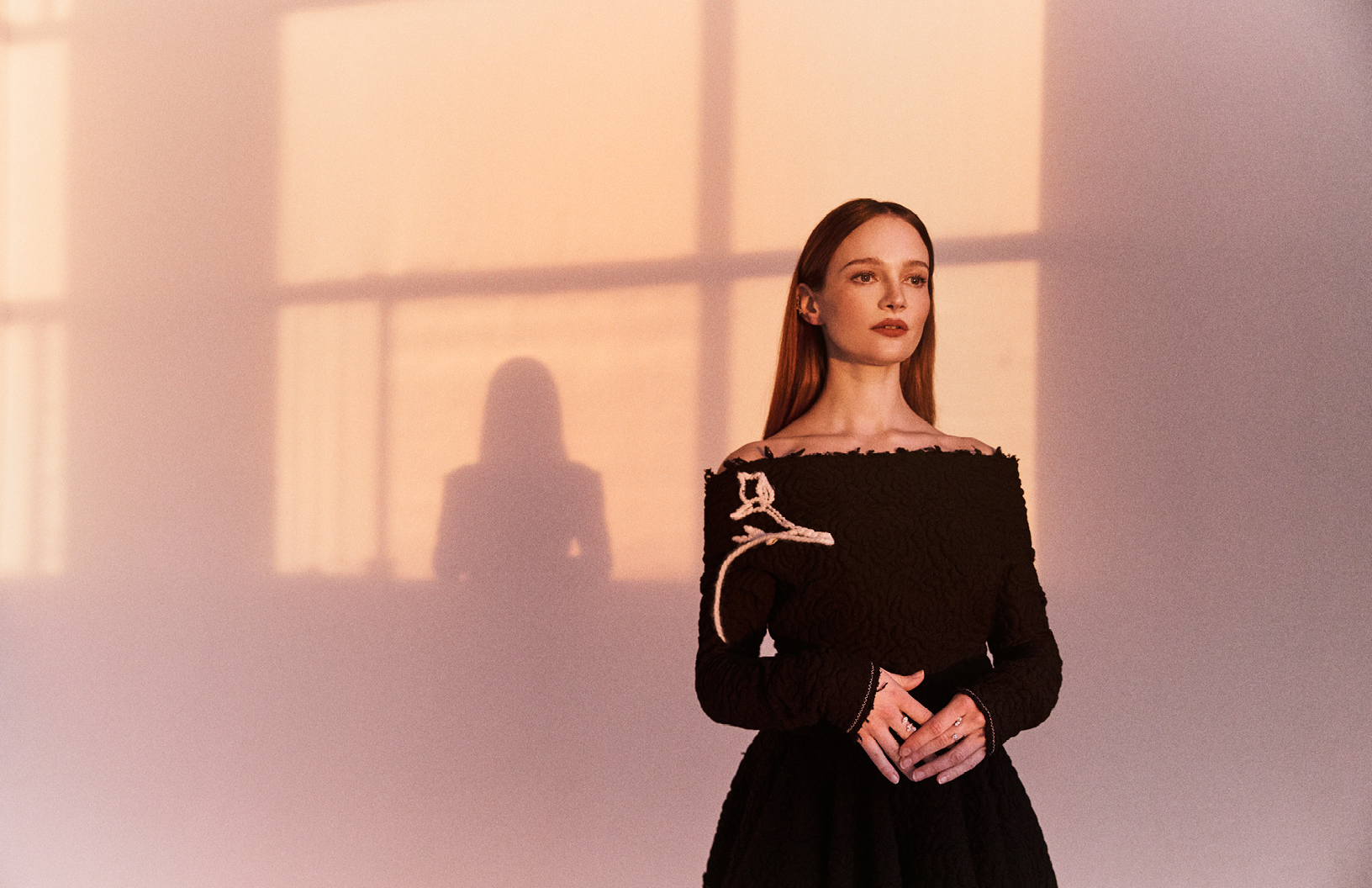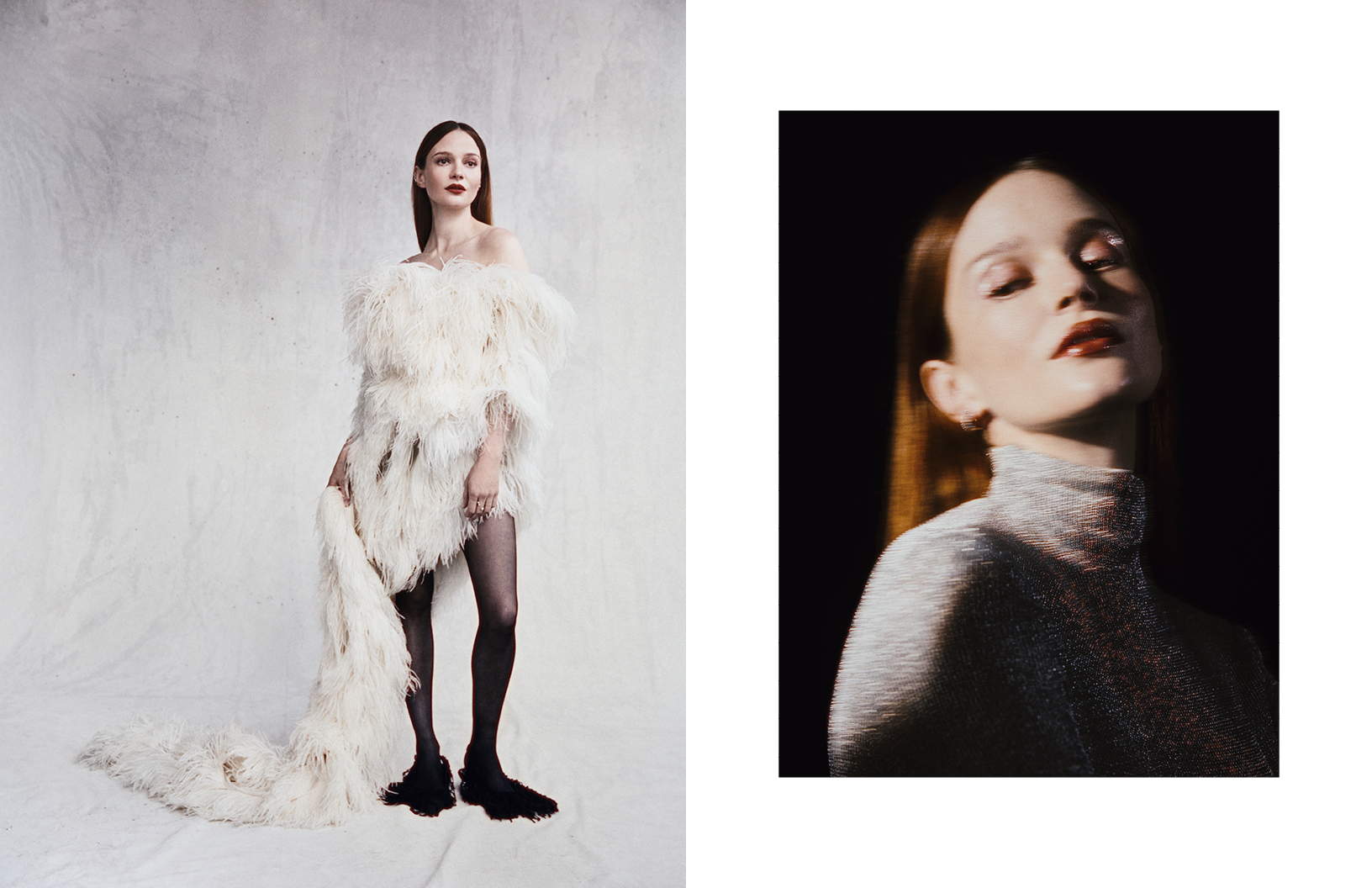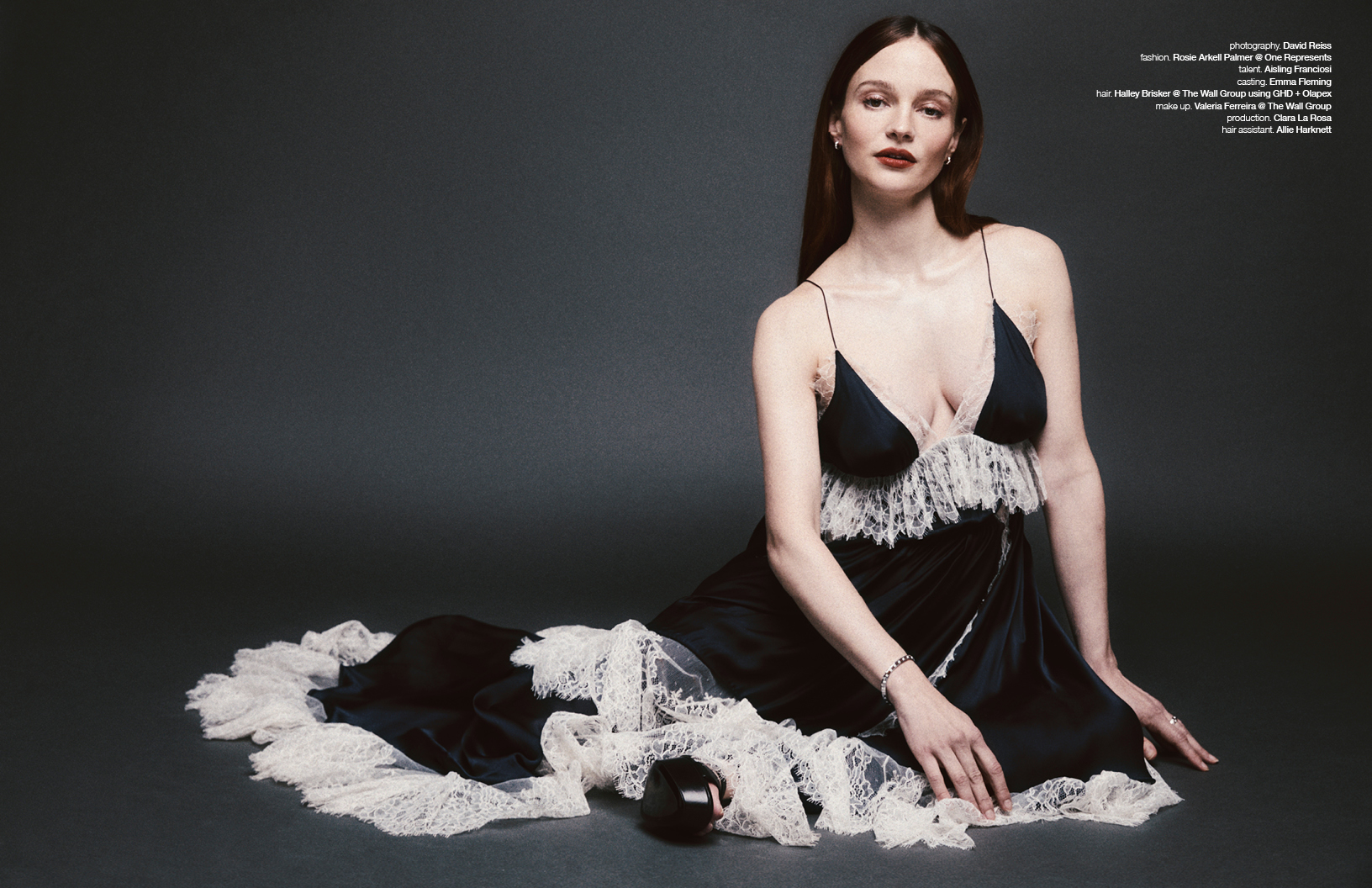Sam Corlett is a fresh-faced anomaly amongst his Hollywood-heartthrob brethren — and not just because he prizes spirituality and meditative practices over the spotlight, or because he’s as likely to be reading the works of Eckhart Tolle and Rupert Spira, as he is to be looking over a film and television script. Perhaps his uniqueness is rooted in his genuine desire to connect authentically with whoever is in front of him, or whatever moment in which he finds himself.
Fresh from filming and back at home in Australia, Sam chats with Schön! about the challenges of re-enacting the fearless life of Nordic explorer Leif Erickson in Vikings: Valhalla, his upcoming coffee-table art book, a recent fascination with Islamic culture and history, and so much more.
Sam, which part of Australia are you in?
I’m from just north of Sydney, in a place called the Central Coast. It’s a small coastal town, just by the water. But I grew up on a bit of property, so I was very fortunate.
You have such a calm, super Zen disposition to you. I’ve watched Vikings: Valhalla— and love it! But what’s your process of transition, going from super Zen to the bloodthirsty conqueror; what emotional palette do you draw from to get you into Leif Erickson’s mind frame?
Oh, there are so many aspects of his story that are just so fascinating. I think something that myself and Jed [Jeb Stuart, writer of Vikings: Valhalla] spoke about at the core of him was his relationship with his father, which I think that kind of son-father relationship— that dynamic has existed throughout time…that almost constant renewal of what masculinity means. At that time, there was very harsh brutality, obviously, because of the times…He was trying to find what he felt his truth was, but growing up on the outskirts of the Viking world, it was survival instincts all the time. He didn’t particularly have anyone to model his lifestyle —that he thought was right— because his father was abusing power. Then he comes to the Viking world, and he sees it being abused as well. It’s like, where can he decipher? What’s his true north?… Carl Jung, the psychologist, speaks about “befriending the beast.” Ultimately, he has to accept that that shadow side of himself exists within him. That’s kind of what Season Two is about…But at the end of Season One, there’s a very big rage, there’s a lot of rage coming out. It’s learning how to deal with that, and what that means for him. There’s a bit of a falling apart of the man so that he may build himself back up together to be the light barracks, and that kind of is historically not.

sweater. A Better Mistake
shirt. Clade
trousers. Sabato Russo
opposite
sweater. A Better Mistake
shirt. Clade
But from where do you channel that rage that we see toward the end of Season One?
I suppose it’s kind of funny… We’ve all felt sorrow, we’ve all felt injustice. I think I’m tapping into that injustice, whether it’s felt or injustice observed, and the frustration that you can’t help back. There was so much going on in the world during the filming of this, that it was an opportunity for me to express that. It was at the end of 2020 that we filmed Season One and then in 2021 was when we filmed Season Two… This was almost a catharsis for me to express myself, you know? There was something that I used to think about, in terms of when you’re a child, if you get your toy taken away that you like— that feeling is the same as an adult losing all their money in the global recession. There’s this universal feeling that we’ve all felt on various levels throughout our childhoods… I suppose I can’t particularly dive into specifics, but there were a lot of felt emotions that I was eager to release.
You used the word “brutality”; it was a brutal time, and they were in perpetual fight or flight mode. I remember studying the history of the Vikings—and other warring periods from history — where I thought, “Oh my gosh, they were so brutal and bloodthirsty, and how could people be so uncivilized?!” Then I stopped myself and realized it’s all relative because we’re no different today if you put everything in its proper perspective. Two days ago, a six-year-old boy in Virginia shot his teacher because they argued. So just putting it in that perspective, watching Vikings and studying that history has equally gruesome parallels on today’s evening news.
Historical drama allows us to distance ourselves. We observe these circumstances and we can feel like we’re apart from it, but it is part of the kind of structural DNA of human existence, historically. We did our best to be historically authentic…I think you can see cultures across the world— whether it be the Indigenous Australians or Native Americans— there is a savagery that is placed on them because it [history] was written by the literate at that time, right? And the same with the Vikings. The idea of recording history was silly to them, but the English sought to record it. So they had that perspective.
I heard through the grapevine that you’re vegan, and the wardrobe department customized your costumes so that they wouldn’t use the leather.
Yeah. When I first arrived in Ireland they had the costumes already done. It was a leather costume, which was very historically authentic, and incredibly done. But it did kind of make me feel physically sick because I hadn’t bought leather for five years before. Weird sensation. I voiced how I felt and very swiftly, they made incredible vegan armour for me. It was so lovely. Then, in Season Two, we were very conscious of what we were putting on Leif. Also for my sake, which was nice. Susan [O’Connor Cave, costume director] created a costume— she’s phenomenal. Our whole team was just so amazing in helping facilitate that.
Was the Viking diet more vegan or meat-heavy?
I mean, the reason that they set up a lot of their trade routes is that they were so malnourished because up in the North in winter it was hard to get the animals to last. A big part of their diet was more lentils and then apples, and I think the meat was part of their diet. They got me vegan jerky—whenever you see me [Leif] eating something that looks like meat, it’s vegan jerky.
A little off-topic, but I love how you’re drinking from a yin/yang coffee cup, and your demeanour reflects the same balanced energy. [Laughter]. So, when you’re escaping the role and stepping out of character, how do you switch from such intensity, and back into yourself?
Yeah, it’s interesting…I’m prepping for something right now, which also has possibly even more emotional intensity, because of its relevance to more present-day family matters. At the moment, I’m kind of practicing incense ritualizing and breathing native to Butchulla, a kind of Balinese theatre from the 1920s…Their commitment to telling stories is just so incredible. The fact that the actors truly felt like they were expressing that which society felt they couldn’t. That was cool. Society helped the actors come back to themselves. So we’re in Bali, it was through holy water and incense, that they breathe it in and cleanse themselves to come back to their sense of self…
But in Ireland, I became very close with the community that I lived in… That was enough to shake it all up. They [the community] had nothing to do with the industry, nothing to do with the stories I might recount at the end of the day, which kind of allowed me to process that. These two gentlemen — The Happy Pear Twins in Greystones, Ireland— who owns the local grocery store are very beautiful souls, and their families are very lovely. They kind of became like brothers; I spoke at their weddings and was doing maintenance at their homes. That was the grounding.
For how long were you there? It sounds like you became intertwined in community life.
Six months in 2020, and eight months in 2021. Then six months just last year 2022, because we’ve already shot Season Three. I suppose at a time when the connection was so craved for, I’ve never felt so homesick… I met these gentlemen—they swim every morning in Ireland in the cold water, they go up to their cafe, they have a coffee and meditate and do breath-work yoga. That’s the lifestyle I lived for myself, but to share it with the community and be welcomed into this community was very special. It certainly made the whole Vikings journey for me, a lot more holistic and rewarding. It was like another thing saying, “oh, that’s why you’re here”, to see this way of things.
That’s wonderful. Do you have a specific spiritual practice that you adhere to or spiritual faith?
I’m attracted to a lot of paths. It’s cool with life. During Season Two— I know that he, [Leif] historically, converts to Christianity. Born pagan, and ends up Christian. In Season Two, we explore a relationship with an Islamic astronomer, whom he becomes quite close to. It’s cool to see when you distill a lot of faiths down, the similarities that exist within them all. That’s what I appreciate: there was so much wisdom within the Islamic culture that I was inspired by during Season Two, that I had never given time to before…other than through the poetry of Rumi, the Sufi poet…But I had no idea of the importance that the Islamic culture had, whether it be science or mathematics. All of that stuff today wouldn’t have existed if it weren’t for the Islamic culture cultivating that. Also, getting the numeric system from India, transcribing it and putting it out into the world, was fascinating…Sorry, tangents. [laughter].
So do you have any specific practice that you follow?
At the moment, there’s a gentleman that I’m listening to called Rupert Spira, who’s like a non-duality kind of person. A lot of like the books I’ve been reading, like the Power of Now, by Eckhart Tolle. I’m currently reading a book called The Courage to Be Disliked, which is incredible. I’m finding more and more, just through those faiths that I mentioned before, the similarities that exist within all teachings. They all point to the same things with the avenues to the same thing, which is essentially love, you know?
This is very true…There was one scene—one of my favourite scenes, or one of the scenes that are most memorable to me for dialogue—when Godwin said to King Edmund, “it’s facing your doubts or acknowledging your doubts, that is the first act of courage”. He said something to that effect…When was the last time that you demonstrated that act of courage, where you specifically faced self-doubt, and acknowledged it?
It’s kind of funny. The book that I mentioned is a lot about that.
The Courage to Be Disliked?
Yes. So it’s a dialogue about Adlerian psychology— he was around during the same time as Jung and Freud. Freud looked at cause and effect— we are who we are today because of the past— which has always been where I’ve found a lot of truth. Adler kind of looks at it from the perspective that “we are who we are because of our goals”, and because of how we wish to be. Sometimes that can be that we wish to be protected, so we’ll protect ourselves by staying at home or, or hating ourselves, so no one else can hate us, or hate us more than we hate ourselves. There are all these weird behaviours for a flourishing, striving, thriving human being…I suppose in my life…Honestly, there are probably parts of my life that I’m getting used to, in terms of the nomadic nature of it, and attempting to foster relationships, you know, while I’m travelling around the world, and not having enough time to foster the foundation of a relationship, in general. So that’s something that I’m working on to develop the courage for.
Another one is the film I’m about to dive into— it’s the first time I’ve gone into something [a film project] without auditioning. This is interesting because usually, the auditions are like, “oh, yeah, you got the flavour. Let’s do it”. Now I’m like, “Okay, it’s diving straight into the deep end.” I leave tomorrow to start pre-production. It’s an Aussie family drama, and it’s dealing with some pretty shadowy topics that aren’t spoken about much. I’m finding myself excited, and also a little nervous to just fully dive in an attempt to honour this aspect of society that’s often put to the side, which deals with addiction.

shirt. Louis Vuitton
jumper. Suss
jeans. Hed Mayner
boots. Virón
belt. Lēo
opposite
shirt. Louis Vuitton
jumper. Suss
jeans. Hed Mayner
boots. Virón
belt. Lēo
That’s emotionally heavy, whereas, as you touched on this earlier, Vikings is physically heavy, you know what I mean? It’s physically taxing, whereas this sounds emotionally taxing.
Whenever I take on a role…your whole scope opens up for inspiration around you. When you’re playing someone who’s dealing with grief, anger, and frustration…you kind of support those thoughts in your being. You’re looking for growth in your life. There are moments in Season Two in which I got to honour Leif. He has a moment where, essentially, he’s contemplating taking his life. That was quite a hectic moment, but a very sacred moment that was felt on the set in terms of what we were telling, especially because mental health was through the roof at that time, in the second season that we were shooting in 2021. There are a few sacred moments, but this project that I’m going into… it’s going to be emotional. I think I feel supported by the cast and director and I think we’re going to make something quite magical, but beautiful, and sacred that shows the human behind the addiction.
Did you find yourself unwittingly taking on any of Leif’s characteristics? Let’s say you were at home doing something, or even if you get into an argument with someone, for example—did you ever find yourself expressing that intensity of emotion or anything?
I think life could be quite brutal at times. In terms of if someone was wearing a mask, or pretending to be something that they weren’t, Leif could read that pretty well. That kind of aspect of him came into my life, where I had trouble dealing with bullshit. When people were being fake around me, I was like, “Oh, I’m just not going to even indulge”…Everyone’s just trying to have fun, experience love and acceptance, and see the inner child that exists within everyone…they’re just behaving in a way that makes them feel like they’ll get love. So to see them…I attempt to see them wholly and fully and be like, “Hey, you can just be real with me.”
Do you come out and say that?
No, but I might attempt to drop my guard as much as possible. It can mean being vulnerable, but it can also mean being wacky and silly. It can be the whole lot, you know, any sense of pretension can be shaken up, in a manner of ways. I suppose, playing around with those little things is nice.
Yeah, it seems like you you approach it with love. Do you think that in 1000 years, future civilization will look at us through the lens of our brutality? In the way that we view the Vikings, or Romans throwing Christians in the den with lions.
For sure. It’s a pretty wild time these days. How the Vikings used axes, we’re seeing people [do this] with words, and strong words. But I do think, also, that this is a pretty amazing time as well in history. Being able to go to the grocery store and seeing the array of available foods. That’s something to be grateful for. To have the time to even dive into a spiritual practice, where within your phone, you connect with the teachings of a teacher from across the world. It’s gonna be interesting— the stories that are going to be told. It almost feels like post-COVID is going to be its art.
The era before 2020, I call B.C.— meaning Before Covid. [Laughter]. You’re an artist, right?
Yeah. I used to get in trouble at school because I’d always be drawing around and not doing my homework, or my work in my book. I tried doing art at school. I went on an exchange to Philadelphia, when I was in grade 10. It was one of the best experiences of my life…my grades didn’t count while I was over there [studying abroad]. I just spent so much time with Mr. Segal at the Art Department, and I used to just like go to every art class, and occasionally pop over to English…I ended up doing sculpture and the sculpture got accepted into the state Art Gallery.
So, can we expect any art openings from you or coffee table art books?
I’ve got a book that I’m editing at the moment, which is some of my words and some of my drawings, which are a bit more simplistic drawings. So, a poetry book, essentially…But given the time, I eventually would love to do an exhibit or release more prints as well. I released prints last year, and raised $12k; around half went to Ukraine, and half went to the flood victims of the floods that were going on in Australia. I’ve done some jewelry, which raised $10k for cancer counselling, which is close to my family because my mum battled cancer three times while I was growing up. I raised $10k for a mental health organization that specifically focuses on children, which is cool because I think the foundations that you lay when you’re a kid are very important in terms of understanding your emotions. I’d love to do another one for the environment.
I love what you just said about children because I often believe who we get along with as adults are who we’d get on with as children. What part of your childhood nature that you’re most proud of, would you say you’ve managed to retain into adulthood?
I suppose my curiosity and wonder. That’s something that I think I certainly attempt to continuously remind myself of…Although sometimes, because it’s become my job, I can take myself a little too seriously. I want to work on laughing at myself; it just comes with it.
How do you think you and Leif would get on? Friends or foes?
Well, he’s so much a part of me now. I feel like he came to me to be expressed in a kind of spiritual way. So I feel like we’d get along. I feel like…aspects of myself are a bit more amplified in his vessel. But I feel like we’d get along. I think we’d get some good chats. It’d take a bit for him to get used to me.
I think you’d balance him out.
Depends on when I catch him; it could be a rough day in life. [Laughter].
Vikings: Valhalla is streaming now on Netflix.
photography. Sam Ramirez
fashion. Douglas VanLaningham
talent. Sam Corlett
grooming. Hee Soo Kwan @ The Rex Agency
photography assistant. Andrzej Lawnik
words. Constance Victory


Schön! Magazine is now available in print at Amazon,
as ebook download + on any mobile device
























